MercoPress. South Atlantic News Agency
Stories for November 28th 2011
-
Monday, November 28th 2011 - 21:22 UTC
Chile requests extension until 2020 to comply with antipersonnel mines clearance
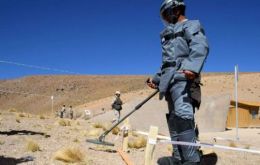
Chile formally requested Monday an extension until March 2020 to complete antipersonnel mines clearance particularly to the north and south of the country, during the meeting of the signatories and observers of the Ottawa Convention taking place in Phnom Penh, capital of Cambodia.
-
Monday, November 28th 2011 - 21:10 UTC
Argentina’s Techint moves strongly into Brazil steel business
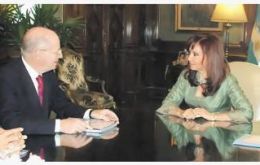
The Techint Group agreed to pay 5.03 billion Reais (2.7 billion dollars) for a 27.7% voting stake in Brazil’s Usinas Siderurgicas de Minas Gerais to boost access to the largest market for steel in Latin America.
-
Monday, November 28th 2011 - 21:04 UTC
Brazil preparing stimuli plan to boost manufacturing and create jobs

Brazilian president Dilma Rousseff said that the country’s economy which slowed down in the last quarter will retake growth and generate more jobs based on government plans to expand manufacturing.
-
Monday, November 28th 2011 - 17:32 UTC
Leisure year for Argentines: one off for every three working days in 2012

This coming year Argentines will be resting more and working less, at an average of one day off for every three worked, according to the 2012 official national, civilian and religious festivities calendar released by the Ministry of Interior.
-
Monday, November 28th 2011 - 17:17 UTC
UK promotes Search & Rescue helicopter service to be provided by civilian crews

The Department for Transport has started the procurement process for a new UK-wide Search and Rescue helicopter service to be provided by civilian crews, it has been announced.
-
Monday, November 28th 2011 - 17:06 UTC
Argentina confirms high seas boarding of Spanish fleet fishing in Falklands
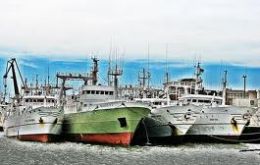
The Argentine government has stepped up its official blockade policy against the Falkland Islands warning Spanish fishing vessels are operating ‘illegally’ in the South Atlantic, since they have not requested licences from the Argentine government, and controls over those activities will continue.
-
Monday, November 28th 2011 - 15:38 UTC
New drilling in Falklands to confirm southern extension of Sea Lion oil find
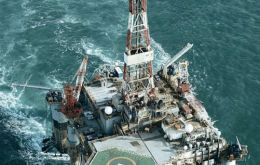
Rockhopper Exploration announced Monday the spudding of its last well of the current successful drilling round in Falkland Islands waters. The well 15/15-4 in the North Falkland basin is situated on Licence PL004b in which Rockhopper will earn a 60% interest following the drilling, with Desire Petroleum holding a 40% interest.
-
Monday, November 28th 2011 - 15:27 UTC
Colourful plastic recycled penguins “take over” Carrasco airport in Montevideo

The Belgian artist William Sweetlove (born Oostende, Belgium, 1949) has placed 330 gigantic sculptures with a strong ecological message in the international airport of Carrasco, Montevideo, Uruguay.
-
Monday, November 28th 2011 - 14:35 UTC
Developing meat export industry, top priority of Falklands’ Agriculture Department
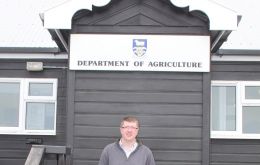
It is the generation of thirty-something who as children were the first to benefit from well-funded primary and secondary education following the Islands’ economic turn-around in the late 1980’s. They were the first generation of locally educated children who could graduate in careers of their choice.
